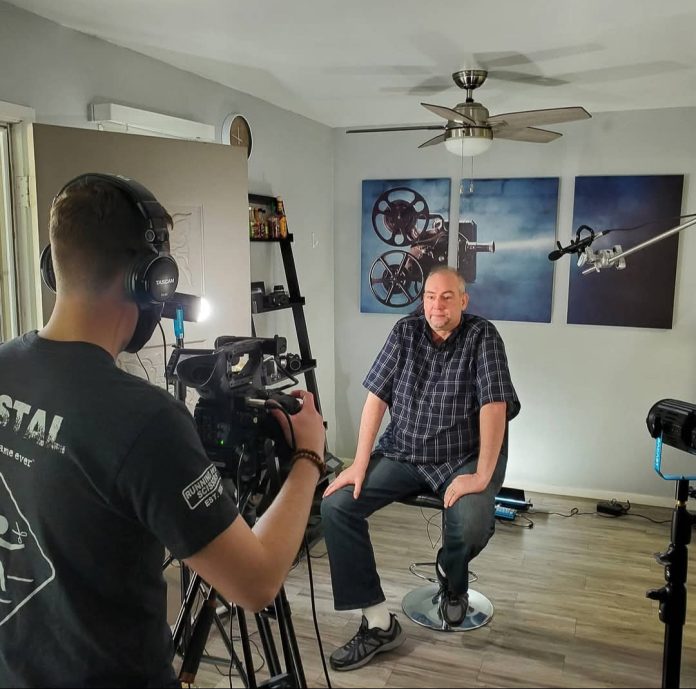Gareth Von Kallenbach was busy when he was reached by phone yesterday. The Comic-Con schedule had just dropped, and for an independent gaming journalist, this was like being invited to cover the Super Bowl.
“There’s this electric buzz in the air,” he told InMaricopa. “Even when you’re sprinting from one hotel to the next with a backpack full of gear, you’re still thinking, ‘This is where the coolest stuff in the world is happening.’”
From his home in Alterra, Von Kallenbach has built a reputation over nearly three decades as a tenacious, wide-ranging gaming and entertainment journalist. With a near-encyclopedic knowledge of pop culture and an obsessive curiosity about the behind-the-scenes mechanics of movies and video games, he’s covered the evolution of the $455 billion dollar video game industry, all while running the entertainment website sknr.net and a companion print magazine.
But one of the most unexpected turns in his career comes not from a blockbuster franchise or mainstream studio; rather, from a controversial little video game born in Tucson in the late 1990s.
It was early in his career, while still a student in Washington State, when Von Kallenbach cold-called a small, independent developer called Running With Scissors to ask for an interview. The game they were working on was called Postal, a darkly comedic and highly controversial shooter that would become both cult classic and political lightning rod.
More than a quarter-century later, Von Kallenbach is featured in the new documentary Going Postal, a film that chronicles the cultural flashpoint the game became, and the Arizona underdog story behind it.
Directed by indie filmmakers Tad Sallee and Jason Sikorsky, Going Postal explores the improbable rise and lasting infamy of Postal, the 1997 game that ignited media firestorms for its cartoonish violence and intentionally provocative satire. The U.S. Postal Service sued the developers over the name. U.S. Sen. Joe Lieberman singled it out during his decades-long crusade against violent video games.
Von Kallenbach, working from his Maricopa home, appears in the film as something of an oral historian for the game and its reputation, good and bad.
“I kind of liked the underdog story to it,” he said. “It clearly said ‘mature’ on the box. To me, it was about freedom of speech. If you don’t like it, don’t play it.”
But he insists it was never just about shock value.

“It’s only as violent as you choose to make it,” he said of the game’s infamous sandbox style. “You could literally walk past a marching band. Or you could set them on fire. It was all up to you.”
That second option was irresistible to those who wanted to censor games of this type.
“Postal was a media frenzy,” remembered Von Kallenbach. “The satire just went right over people’s heads.”
Shot over more than five years, Going Postal includes interviews with developers, fans, critics and cultural commentators. It also includes Von Kallenbach’s perspective as both an outside observer and occasional participant. He even voiced a character in a Postal sequel and appears briefly in the 2007 film based on the game.
Von Kallenbach’s interview for the film was shot during the height of the COVID-19 pandemic, in his Maricopa home, with a masked, two-person crew.
“I would take the mask off to talk and put it right back on,” he said.
The film was largely crowdfunded and eventually released on Blu-ray, selling out almost immediately. Von Kallenbach takes that as a signal that Postal still resonates, even with younger gamers discovering it for the first time.
Whether it’s covering massive franchises or fringe phenomena, Von Kallenbach’s schedule remains full. As he plans his next Comic-Con panel, this year, a lighthearted debate about which horror films deserve remakes, he’s still thinking about Postal, the game that once horrified a nation and is now being reexamined as a misunderstood time capsule.
“It was never supposed to be polished,” he said. “That was the point. It’s rough, it’s loud, it’s absurd. That’s exactly what made it stick.”
